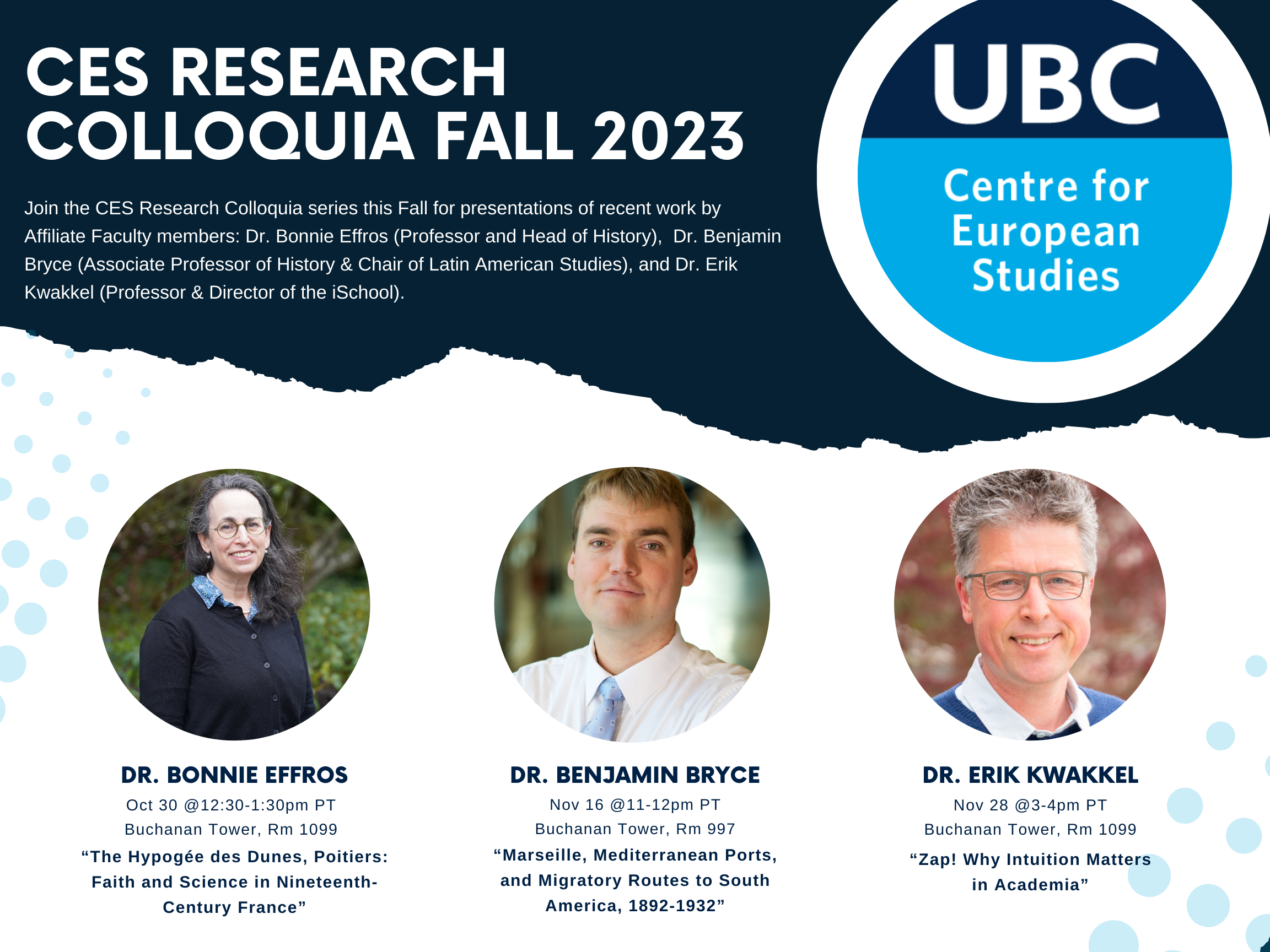
The UBC Centre for European Studies is excited to announce the lineup for our Fall 2023 Research Colloquia:
“The Hypogée des Dunes, Poitiers: Faith and Science in Nineteenth-Century France“ by Dr. Bonnie Effros
Monday, October 30th @12:30-1:30 pm PT, Buchanan Tower Room 1099.
The late nineteenth century saw the growth of a sizable chasm between the faith-based work of clerical scholars and the proponents of professional archaeological circles in France. The career of the Belgian Jesuit Camille de la Croix is a good example of such a phenomenon: in 1879, the archaeologist, who would remain for over forty years in Poitiers, France, believed that he had discovered 72 previously unknown martyrs at the Hypogée des Dunes. However, because his interpretation of the site was improbable and supported ultramontane claims for the apostolic origins of the church in Gaul, some colleagues were skeptical. Many lay contemporaries in the Third Republic argued that a faith-based approach such as that of de la Croix precluded full and meaningful participation in scientific research. In this presentation I will address the scholarly conflict over the Hypogée des Dunes and what that said, in turn, about evidence for the earliest Christians in Gaul.
“Marseille, Mediterranean Ports, and Migratory Routes to South America, 1892-1932“ by Dr. Benjamin Bryce
Thursday, November 16th @11:00-12:00 PT, Buchanan Tower Room 997.
Drawing from recent research, this talk sheds light on the role of the Société générale des transports maritimes in shaping Italian, Spanish, and Syrian migration to Buenos Aires in the late and early twentieth centuries. In most studies of immigration in the Americas, scholars have paid little attention to the land and sea routes that migrants took to ports in Europe, the recruitment strategies of shipping companies, the scrutiny and sanitary inspection that migrants faced at ports before boarding ships and before disembarking, and the decisions that people made about staying home or leaving. Proximity to ports was crucial in determining which Europeans left for the Americas in the nineteenth century. Yet the same cannot be said by the turn of the twentieth century. What was the role of shipping companies in opening up new sources of migration in eastern Europe, the Middle East, and different regions of Spain and Italy? By centring travel and the role of companies, this talks casts light on important yet under-considered factors in the history of global migration.
“Zap! Why Intuition Matters in Academia” by Dr. Erik Kwakkel
Monday, November 28th @3:00-4:00 pm PT, Buchanan Tower Room 1099.
While the notion of intuition would perhaps seem unwelcome in the empirical arena of academia, it thrives in many Humanities disciplines. The study of medieval manuscripts, books before the application of printing, leans heavily on intuitive verdicts. The expert eye of the paleographer will recognize in the style of a scribe’s handwriting precisely when and where a manuscript was produced, sometimes with eerie precision. The source of this sensation is the shape of the handwritten letters. Zap! Looking at medieval handwriting, the experienced eye will be hit by an abundance of unsolicited information about the manuscript’s origins. This presentation shows how expert verdicts are derived from the general appearance of medieval handwriting and how variation in styles of handwriting can be captured in quantitative terms.